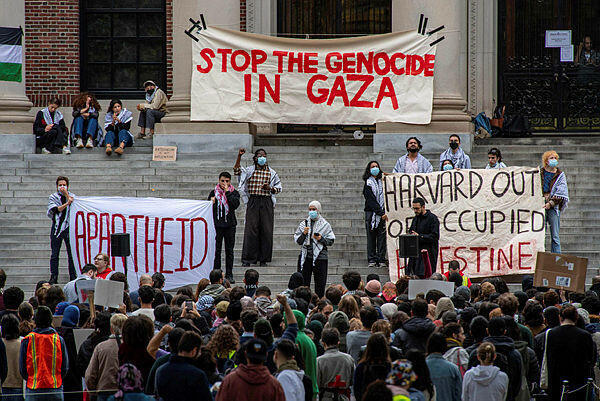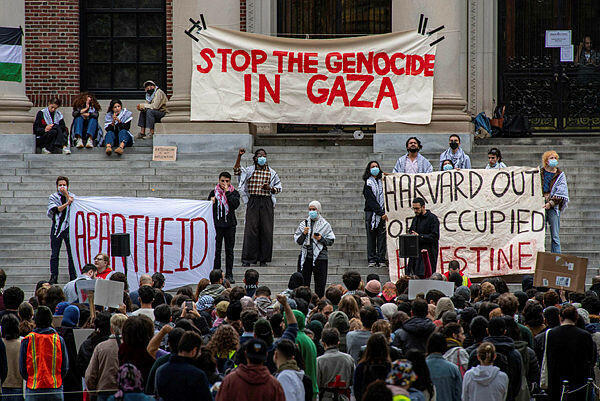
Israelis being ‘unofficially boycotted’ in global academia, says report
According to the National Council for Civilian R&D, there have been cancellations of invitations to joint conferences, rejections of articles for publication and grants to Israeli researchers, and more, all of which could seriously harm Israel’s scientific and economic standing
A letter sent by the National Council for Civilian Research and Development to the Knesset's Science and Technology Committee states that there is a "quiet unofficial boycott of Israeli researchers'' in Western academia. It warns that this boycott poses "dangers to Israel's scientific standing and could harm the Israeli economy." The paper was published in preparation for a discussion expected on Monday in the committee on the challenges of research and development in the war.
According to the paper, written by the council Chairman Prof. Peretz Lavie and policy advisor Debbie Kaufman, "scientific research ties between Israel and the world are reflected in the exchange of researchers within the framework of agreements with academies across the world, in scientific conferences, the provision of sponsorships for prestigious programs and post-graduate scholarships, international scientific organizations and active membership in international research facilities. All of these provide recognition, familiarity, exposure and international scientific standing. Damaging these ties could harm the Israeli economy, which relies on scientific capabilities as a start-up country." The council points out that "over the years, Israel, despite the scientific recognition it receives, fights for its scientific rights in the face of antisemitism."
According to the study published in an emergency discussion held by the council at the beginning of this month, "Israel is being subjected to an unusual wave of antisemitism, and there is a rise in hatred towards Jews and Israelis. Since October 7, a sort of quiet boycott of Israeli researchers has begun, of the kind that has never been seen before. This boycott is reflected in the cancellation of invitations to joint conferences, the rejection of articles for publication, the rejection of grants to Israeli researchers, and more."
The council calls on the government to take immediate steps to address threats to Israel's scientific standing. They have urged the government to "not cut research budgets of the Ministry of Science and the Council for Higher Education; strengthen the bi-national foundations that support joint research with researchers from countries around the world; call for Israeli and leading Jewish scholars abroad to move to Israel and strengthen support for their absorption; and allocate designated funds for the purposes of international scientific conferences in Israel for the hosting of foreign scientists and for Israeli scholars to travel to conduct research abroad." The council says that Hamas’ October 7th attack and Israel’s war against Hamas must not “be a turning point in the level of research and in Israel's scientific relations with other countries.”
Professor Rivka Carmi, the head of scientific NGO ScienceAbroad which helps to repatriate Israeli scientists back to Israel, says that “campuses are implementing a sort of hidden boycott that could significantly endanger Israeli research capabilities, mainly because the Israeli academy is based on peer evaluations." She says that there has been “a significant deterioration in the personal security of Jewish and Israeli students on campuses. On several campuses, students were asked to take down Jewish/Israeli signs and even enter the campuses through back doors. Researchers feel that the campus has revoked their right to exist."
Prof. Michal Neeman, who leads an academic whose aim is to respond to antisemitism on campuses worldwide, mentioned that academic boycotts have been issued in several countries, including Ireland, Spain, and Italy. Other scholars are saying that more and more people worldwide are trying to distance themselves from Israel, whether by rejecting articles or delaying the shipment of materials to research labs.
Prof. Daniel Zeifman, the head of the National Science Foundation, says that there are “senior Jewish scientists in the US who would be happy to join the academy in Israel and settle here due to rising antisemitism. These are significant scientists who, if they come, would be a significant asset to the Israeli academy. I recommend establishing a special fund that would enable such moves.”















